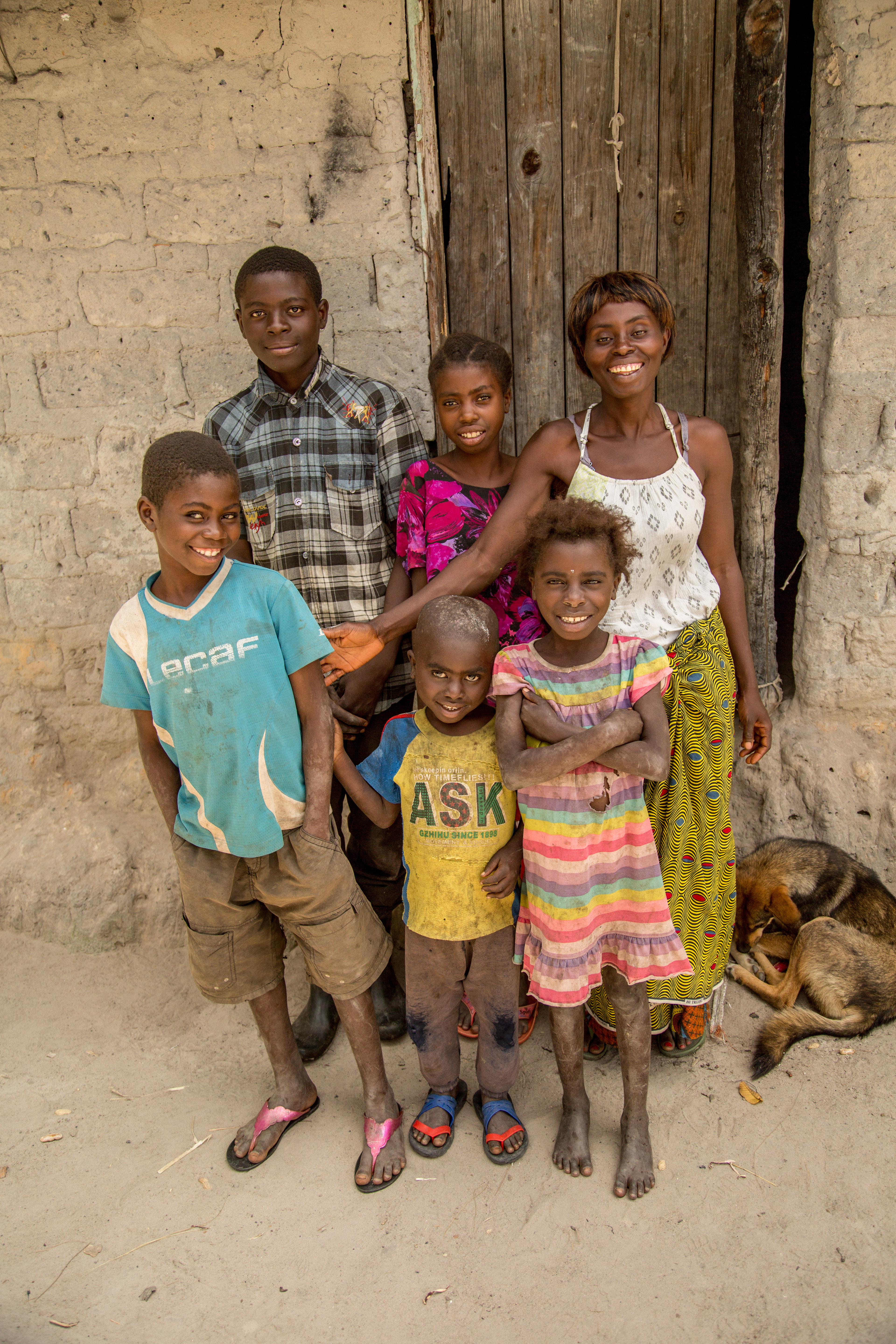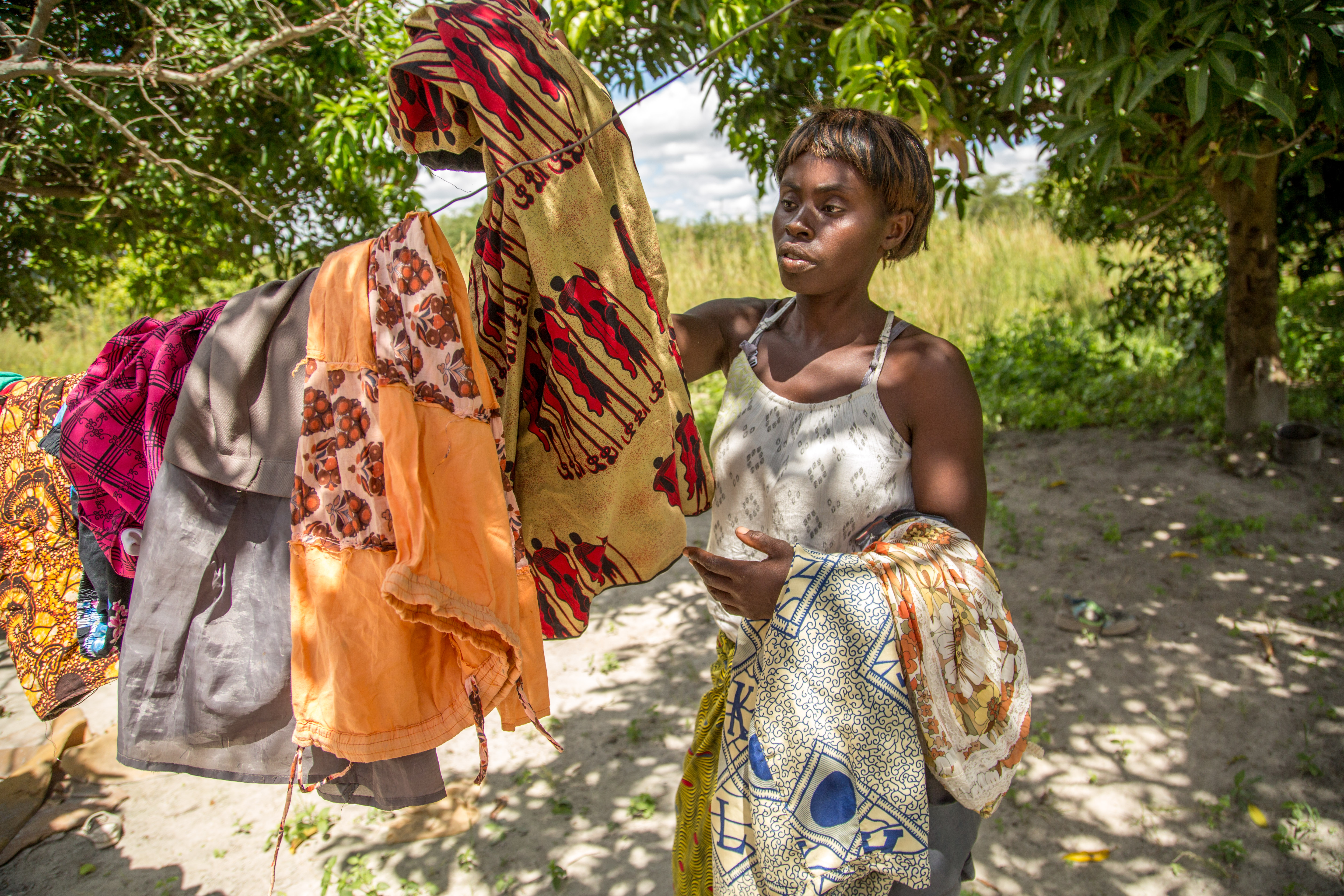

For Esther Musonda and her family, life was a series of struggles before receiving a cow from Heifer Zambia. She and her husband, Justin Tiki, farmed maize, sweet potatoes and ground nuts for the family to eat, but the harvest was never enough without fertilizer to nourish the crops. They filled the holes in their diet with cornmeal when they could, but money was difficult to come by despite the long hours of labor they both put in on other farms. Poor nutrition led to compromised immune systems and frequent illnesses.
“We used to get sick, all of us in the house,” Musonda said. “And there would be no one to take care of the other.” Malaria would strike at least one member of the household on a monthly basis. When a child needed medical attention, Musonda would carry the child on her back for two hours to get to the nearest doctor.
Musonda’s family could never afford the school fees for her six children, so they never attended school. No one in the family had more than two or three pairs of clothes. “We used to put on the same clothes, very bad clothes,” she said.
The gift of a cow has given Musonda the ability to solve these problems for her family. Manure from the cow makes farming more fruitful, and the sale of milk more than covers the rest of their diet.
“We eat rice, bread, we even go and buy broilers, something we never used to do,” Musonda said. “We come walking majestically with food.”
Better nutrition has led to much better health. Musonda and her family also have plenty of clothes to choose from, and all the children attend school now. “I never thought my children would go to school, but now I’m sure they will finish school and even go on to university,” she said.
The family even had money left over to put in the village savings group, another initiative of the Heifer Zambia project. With money they saved, Musonda and Tiki decided to invest in a plot of land for a new house and a rental property in a nearby town, which brings extra income on a monthly basis.
“You know, I never used to dream of having a piece of land. It’s really something that I’m proud of. Because now I’m a landlord.”
Tiki, who used to be a driver, has now committed to farming fulltime. “He’s agreed to stay at home and help out,” Musonda said. “He has seen that, in animals, you can make money.”